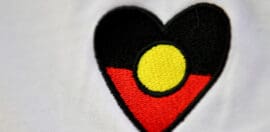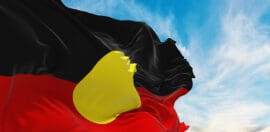Calls for Indigenous youth to co-design the programs that support them

24 September 2020 at 8:00 am
Advocates say there is a critical shortage of culturally and age-appropriate support services for young Indigenous people
Aboriginal and Torres Strait Islander young people must be central to the co-design and delivery of services they need to improve their social and emotional wellbeing, a new report says.
Mission Australia has analysed the responses of more than 1,500 Aboriginal and Torres Strait Islander young people from its 2019 Youth Survey, revealing the unique experiences and challenges faced by Indigenous youth.
When compared to non-Indigenous respondents, Aboriginal and Torres Strait Islander youth reported higher levels of personal concern about domestic/family violence (16.9 per cent vs 8.6 per cent), drugs (14.5 per cent vs 7 per cent), discrimination (16.8 per cent vs 9.9 per cent) and suicide (20.5 per cent vs 13.9 per cent).
A much higher proportion of Aboriginal and Torres Strait Islander respondents also reported experiencing a time when they had no fixed address, or lived in a refuge or transitional accommodation (16.2 per cent vs 5.9 per cent).
And while more than half of Indigenous respondents said they were overall happy with their lives and were positive about the future, almost one in five (18.9 per cent) felt sad or very sad about their life as a whole.
Mission Australia CEO James Toomey said with COVID-19 resulting in many young people being unable to connect with appropriately-tailored services or a secure home, these difficulties were likely to worsen.
He said authorities must address a critical shortage of culturally and age-appropriate support services that are necessary to nurture the social and emotional wellbeing of young Indigenous people.
“Aboriginal and Torres Strait Islander young people must be central to the co-design and co-implementation of the services that they need,” Toomey said.
“It’s also vital and logical that Aboriginal and Torres Strait Islander people have greater influence over the policies, programs and services that affect them.”
This call has been backed by Professor Tom Calma AO, who is chancellor of the University of Canberra and co-chair of the Voice to Government Senior Advisory Group.
He said the policy and service response for Aboriginal and Torres Strait Islander young people was more critical now than ever.
“Policy leaders must be serious about reconciliation and enhancing the social and emotional wellbeing of Aboriginal and Torres Strait Islander young people and come together with them and prioritise tackling these issues with practical solutions,” Calma said.
“Aboriginal and Torres Strait Islander young people should be actively involved in services design and delivery. After all, they hold the knowledge and wisdom about what it means to be an Aboriginal or Torres Strait Islander young person today.”
Calma told Pro Bono News that a co-design approach has been gaining momentum recently.
He said the National Aboriginal and Torres Strait Islander Health Plan was developed through a co-design process and offered an example of what good practise looked like.
“I think there’s a bit less fear within government now to engage with [Indigenous people],” he said.
“And in the future we will see more meaningful opportunities to co-design, because what we don’t need is a token effort.”
Calma encouraged not only politicians and bureaucrats to read this report, but also people in the philanthropic sector.
He said the report offered great guidance and also highlighted an opportunity for mainstream organisations to engage with Aboriginal and Torres Strait Islander youth.
“[Organisations] should provide opportunities where they can hold a forum to test their policies and programs with youth to see if they’re relevant or not,” he said.
“It’s good practice to do that and meaningfully engage with and properly compensate people who take part.
“This will have a very tangible benefit on programs not only from government, but from the private sector and community sector organisations as well.”







